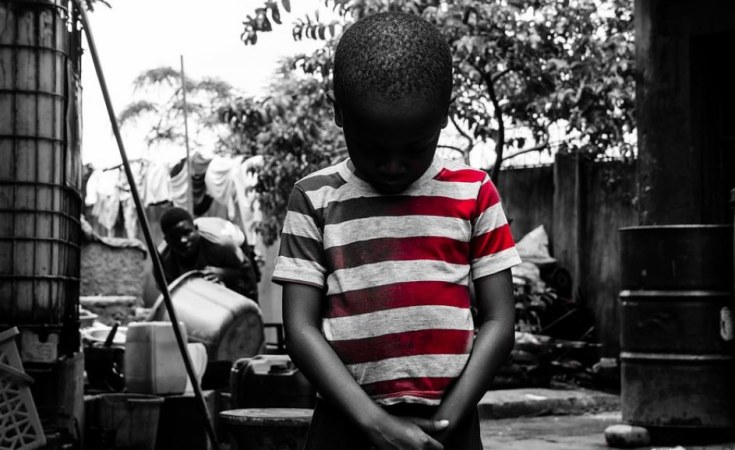Mental health practices in Africa are diverse and influenced by a variety of factors, including culture, policy, and available resources.
With an increasing awareness of the importance of mental health, the continent is at a pivotal moment in developing effective strategies for mental health care.
This article will delve into the current state of mental health in Africa, compare traditional and modern approaches, and examine policies and educational initiatives.
Understanding Mental Health
Mental health, mindfulness, and personal growth are all interconnected and crucial aspects of overall well-being.
Here’s a brief overview of each:
- Mental health refers to our emotional, psychological, and social well-being. It affects how we think, feel, and act. It also helps determine how we handle stress, relate to others, and make choices. Mental health is essential at every stage of life, from childhood and adolescence through adulthood.
- Mindfulness: This is a type of meditation in which you focus on being intensely aware of what you’re sensing and feeling in the moment, without interpretation or judgment. Practicing mindfulness involves breathing methods, guided imagery, and other practices to relax the body and mind and help reduce stress.
- Personal Growth: This involves activities that improve awareness and identity, develop talents and potential, enhance the quality of life, and contribute to realizing dreams and aspirations. Read self-help books, attend seminars, or seek professional help through coaching or therapy to achieve personal growth.
Remember, it’s okay to seek help when you need it, and taking care of your mental health is a sign of strength. Always strive for personal growth and stay mindful of your thoughts and feelings. Your mind truly matters!
Why is this not practiced in Africa?
Despite strides in awareness, mental health stigma in Africa remains a significant barrier to effective treatment.
While data is scarce, existing studies indicate that a large percentage of the African population may be affected by mental health issues such as depression and anxiety.
Unfortunately, the stigma associated with mental health often prevents individuals from seeking proper care.
Mental health practices are not as prevalent in Africa due to a variety of factors, including:
- Demand and Supply: The demand for mental health services is increasing in Africa, particularly among vulnerable populations like women. However, most African governments devote less than 1% of their budgets to mental health services. This lack of funding can lead to an inadequate supply of mental health services.
- Cultural Beliefs: Cultural concepts of personhood and mental health can influence the understanding of mental illness, help-seeking behavior, and expectations for recovery. In some cases, individuals may prefer to visit traditional or religious leaders for treatment.
- Access to Care: Mental healthcare for people living in sub-Saharan Africa is often inefficient, inadequate, and inequitable. High treatment costs can leave many individuals with untreated mental disorders.
- Stigma: As mentioned above, there can also be a significant stigma associated with mental health issues, which can deter individuals from seeking help.
However, it’s important to note that while these challenges exist, there are ongoing efforts to improve mental health care in Africa.
For instance, evidence-based intervention is being recognized as a front-line method of treating mental illness in low-income countries.
Let’s look at some common mental health disorders in Africa.
There are several common mental health disorders in Africa:
- Depression: Depression is the most prevalent mental illness in the world. Currently, an estimated 100 million people in Africa suffer from clinical depression, including 66 million women. In a study spanning 97,616 adolescents, the prevalence of depression was found to be 26.9%.
- Anxiety Disorders: Anxiety disorders often occur together with depression. The World Health Organization’s multinational study on general health care found that the comorbidity of depression and anxiety exceeded 50 percent. The prevalence of anxiety disorders was found to be 29.8% among adolescents.
- Substance Abuse Disorders: Substance abuse disorders are also prevalent in Africa.
- Mood Disorders: Mood disorders are common and often occur alongside anxiety disorders and depression.
- Post-Traumatic Stress Disorder (PTSD): In one study, the prevalence of PTSD was found to be 21.5% among adolescents.
- Suicidal Thoughts: The prevalence of suicidal thoughts was found to be 20.8% among adolescents.
These disorders can have a significant impact on individuals’ quality of life and productivity. It’s important to seek help if you or someone you know is struggling with these issues.
Mental Health Initiatives in Africa
There are several mental health initiatives in Africa that are making significant strides:
- World Health Organization (WHO) Africa: WHO has identified mental health as an integral component of the COVID-19 response. Also, they have conducted a rapid assessment of service delivery for mental, neurological, and substance use disorders during the pandemic.
- African Mental Health Research Initiative (AMARI): AMARI is a mental health research capacity-building program launched in 2015 to build an Africa-led network of future leaders in mental, neurological, and substance use research in Africa.
- Mental Health Innovation Network (MHIN) Africa: MHIN Africa is a database of mental health innovations in Africa.
These initiatives are working towards improving mental health care in Africa by increasing access to care, reducing stigma, and promoting research and innovation in the field.

Education and Awareness
Mental health education in Africa is slowly gaining momentum with the introduction of school-based programs and public awareness campaigns. However, we still need to do much to eradicate the myths and stigma surrounding mental health issues.
Conclusion
Nonetheless, mental health practices in Africa are evolving but face significant challenges, including stigma, limited resources, and policy gaps.
More so, a collaborative effort involving policymakers, healthcare providers, and the community is essential for substantial progress.
By integrating traditional practices with modern medical approaches, Africa can pave the way for a more holistic and effective mental health care system.
If you found this article insightful, it’s time to take the next step. Advocate for mental health reforms in your community, support local and international organizations that focus on mental health in Africa and contribute to educational initiatives that aim to eradicate stigma.
Only through collective action can we hope to see significant advancements in mental health practices in Africa. If you’re a healthcare provider, consider specialized training in culturally sensitive care.
Policymakers and community leaders, the onus is on you to put mental health at the forefront of public health agendas. Together, let’s make mental wellness a reality for all Africans.









